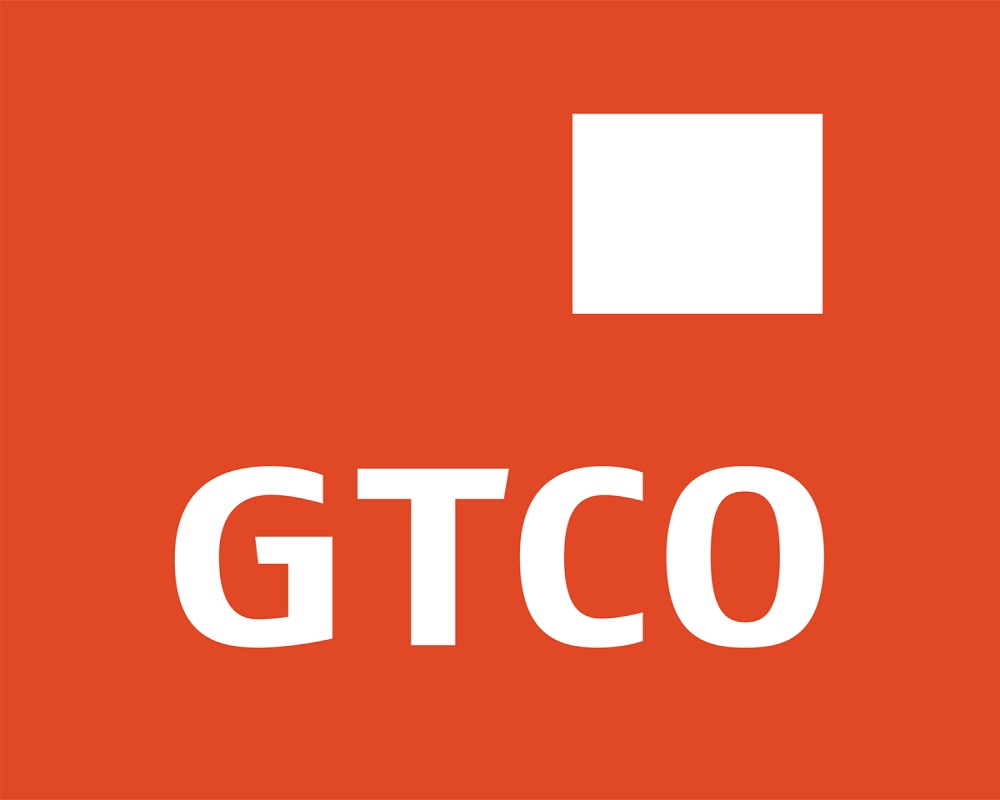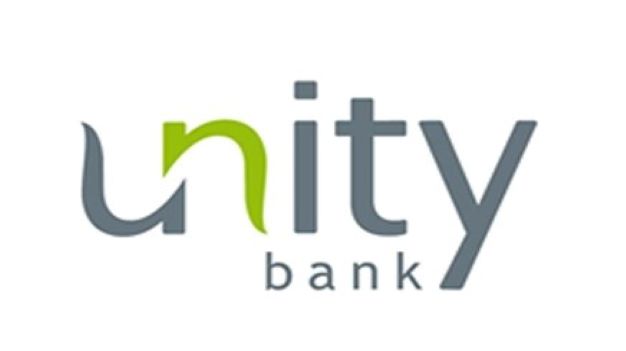E-Financial
GTCO Plc Releases Q1 2022 Unaudited Results, Reports ₦54.3b Profit Before Tax

Guaranty Trust Holding Company Plc has released its Unaudited Consolidated and Separate Financial Statements for the period ended March 31, 2022, to the Nigerian Exchange Group (NGX) and London Stock Exchange (LSE).

The Group reported profit before tax of ₦54.3billion, representing an increase of 1.1% over ₦53.7billion recorded in the corresponding period March 2021. FX translation of the FCY loan book led to a drop in the Group’s net loans by 4.7% from ₦1.80trillion recorded as at December 2021 to ₦1.72trillion in March 2022. Deposit liabilities however grew by 0.7% from ₦4.13trillion in December 2021 to ₦4.16trillion in March 2022.
The Group’s Balance Sheet remained well structured and resilient with Total Assets and Shareholders’ funds closing at ₦5.50trillion and ₦908.8billion, respectively. Strong Capital Ratios and Asset Quality was sustained as CAR, NPL ratio and Cost of Risk (COR) closed at 22.9%, 5.9% and 0.1% in March 2022 from 23.8%, 6.0% and 0.5% in December 2021, respectively.
Commenting on the results, the Group Chief Executive Officer of Guaranty Trust Holding Company Plc, Mr. Segun Agbaje, said; “Our first quarter results show a decent improvement across key revenue lines as well as other financial metrics, which demonstrates our ability to effectively navigate the evolving business landscape anchored on our strong business fundamentals.”
He further added, “With this performance, we are optimistic about the rest of 2022 as we rapidly consolidate the gains of our new holding company structure to deliver superior Stakeholder value. Importantly, our non-banking businesses including Pension Management, Wealth Management and Payments will serve to diversify our earnings capacity as we look to create a model financial services ecosystem for all of Africa.
“As a Group, we are fully committed to providing innovative financial solutions whilst constantly delivering best-in-class customer experiences in line with our long-term strategy.”
In terms of significant performance metrics, the Group continues to post one of the best metrics in the Nigerian Financial Services Industry in terms of key financial ratios i.e., Post-Tax Return on Equity (ROAE) of 19.3%, Post-Tax Return on Assets (ROAA) of 3.2%, Full Impact Capital Adequacy Ratio (CAR) of 22.9% and Cost to Income ratio of 47.0%.
GTCO Plc is a fully-fledged financial services group with banking operations across West and East Africa and the United Kingdom as well as non-banking businesses in several key industry segments including Payment, Funds Management and Pension Fund Management. With over 25 million customers and more than 10,000 employees, the Group remains one of the most profitable and best managed financial services companies out of Nigeria.
Its leadership in the banking industry and efforts at empowering people and communities has earned it many prestigious awards over the years including Africa’s Best Bank and the Best Bank in Nigeria at the 2021 Euromoney Awards for Excellence. It also retained its position as Africa’s Most Admired Financial Services Brand in the 2021 ranking of The Brand Africa 100: Africa’s Best Brands.
E-Financial
Majority of Nigerians do not Trust Govt with Tax Revenue – SBM

Majority Nigerians do not trust the government to properly utilise their tax payments for good use, according to a survey by SBM Intelligence across nine cities.

The survey highlighted why recent tax reforms have triggered widespread anxiety and resistance.
“Survey data from 200 respondents across nine cities indicate that 68.5 percent of Nigerians completely distrust the government’s use of tax revenues, whereas only 27.5 percent view the reforms as beneficial to the country, ” SBM intelligence said in its recent report titled Taxing Patience.
Nigeria’s 2025 Tax Reform Acts took effect in January, introducing the most comprehensive overhaul of the tax framework in decades. The reform has created more awareness among Nigerians than ever before, increasing their further distrust in the government’s use of tax revenues.
The distrust reflects years of poor service delivery and weak accountability, shaping public doubt toward the new tax system despite assurances that the reforms are designed to ease burdens and improve fairness.
“In the past, people avoided tax because they felt the government wouldn’t provide basic amenities,” businessday quoted Okanlawon Hakeem, a Lagos-based businessman, as saying.
“You drill boreholes yourself, pay for public transport yourself, and sometimes fix your local road yourself. So, you ask yourself what the government is doing with the tax money.”
The SBM Intelligence report noted that access to reliable electricity, improved security and better roads were the clearest signals that would make tax compliance worthwhile.
“46 percent of participants identified improvements in roads and security as their primary motivation for tax compliance,” SBM Intelligence noted, explaining that service delivery, rather than enforcement alone, is likely to shape taxpayer behaviour.
Government officials have defended the changes as necessary to improve public finances and reduce Nigeria’s dependence on oil revenue, pointing to the country’s historically low tax-to-GDP ratio.
With a tax-to-GDP ratio of less than 10 percent, Nigeria has lagged behind regional peers such as Ghana and Kenya. Taiwo Oyedele, chairman presidential fiscal policy and tax committee, hopes the reforms will lift the ratio toward 18 percent over the medium term.
Public sentiment, however, has not moved in step with these fiscal ambitions. According to the report, only 27.5 percent of people believe that the new tax laws are good for the country.
The report also suggests that greater awareness of the reforms often coincides with stronger skepticism rather than acceptance.
Distrust cuts across regions and occupations but is especially pronounced in major commercial centres.
The report mentioned that people in Lagos and parts of the Northeast have the strongest resistance and protest sentiment, reflecting concerns about enforcement, fairness and legislative integrity.
In its Year Ahead 2026 outlook, SBM Intelligence projects that protests are likely as the real impact of the new framework becomes clearer. The report points to the June 2024 youth-led protests in Kenya, which resulted in a reversal of the policy.
In Nigeria, where inflation is only just beginning to show signs of easing, the tolerance for perceived government excesses, including lavish convoys and budget padding, is at an all-time low.
Business owners, traders and informal workers expressed particular unease, fearing the reforms could deepen the problem of double taxation. Many worry that government levies will exist alongside rather than replace the fees already collected by unions and non-state actors.
“ Nearly a third of business respondents said they expect to pay both official taxes and union fees,” the report stated.
For informal workers such as market traders, drivers and artisans, this fear is grounded in experience. Many already make daily payments to unions or associations, often under pressure.
Without a clear plan to eliminate these parallel charges, new government taxes are widely viewed as an additional burden rather than a simplification of the system.
In Lagos, Kano and Onitsha, constant electricity emerged as the strongest trigger for compliance. In Abuja, Port Harcourt and Bauchi, respondents prioritized roads and security. Across cities, the message was consistent: willingness to pay is conditional on visible outcomes.
Analysts warn that without clear improvements in service delivery, stronger enforcement could harden resistance rather than improve compliance.
The report stated that without rapid, visible improvements in public services, the government risks collecting more money while winning.
E-Financial
Why FirstBank Wrote off N748Bn Bad Loan – Otedola

Femi Otedola, group chairman, First Bank Holdings, has justified the company’s decision to write off N748bn in legacy non-performing loans, saying the move was a deliberate strategy aimed at securing long-term financial stability, even though it significantly reduced reported profits.

Femi Otedola, group chairman, First Bank Holdings,
Otedola made this known in a post on his X handle, where he explained that the large-scale provisioning led to a 92 per cent drop in the holding company’s profit figure.
According to the billionaire investor, the write-off was in line with the Central Bank of Nigeria’s directive encouraging banks to confront non-performing loans openly instead of postponing the issue.
“At First HoldCo we decided to clean house properly. We took a huge one-time hit of N748bn to admit old bad loans instead of pretending they do not exist. That is why profit looks like it crashed by 92 per cent. Painful headline, but it is a serious long-term move,” he wrote.
He noted that the decision was taken to finally address problematic loans accumulated over previous years and to strengthen confidence among stakeholders.
“Why do this now? Because the CBN is pushing banks to stop kicking problems down the road. So First HoldCo basically closed the chapter on messy loans from past years which sends a clear message that borrowing has consequences and it helps rebuild trust,” Otedola added.
Despite the scale of the write-off, Otedola maintained that the bank’s core business remained solid, stressing that strong earnings demonstrated the institution’s underlying financial strength.
He disclosed that the bank generated N2.96tn in interest income and N1.91tn in net interest income, figures he said were sufficient to absorb the clean-up while keeping operations stable.
“The key point is this: our business itself is STILL strong. It made N2.96tn in interest income and N1.91tn in net interest income, which gave it the strength to take the cleanup and still stay standing,” he stated.
Looking ahead, Otedola expressed confidence in the bank’s future, saying the balance sheet clean-up has positioned First Bank well for recapitalisation and sustained growth.
“Now at First Bank and beyond we go into 2026 lighter, cleaner and better prepared for the recapitalisation era and serious growth. Bad loans cleared + strong income engine + long-term thinking = real value creation,” he concluded.
E-Financial
Unity Bank Unwraps Mobile App to Deepen Digital Banking Experience

Unity Bank Plc, Nigeria’s retail lender, has launched an upgraded version of its mobile banking platform, Unifi, as part of ongoing efforts to improve customer experience and reinforce its proposition in e-business.

Speaking on the upgrade, Adenike Abimbola, divisional head, Retail, SME, Digital Banking & Fintech Partnerships at Unity Bank, said the improvements were built on the back of continuous interrogation of the platform to be more responsive to customer feedbacks which are being received overtime in our interactions and engagements.
“Digital banking has become an integral part of everyday life, particularly for retail customers who expect speed, dependability, convenience, and security as standard. With the latest upgrade to Unifi, we are responding directly to these expectations by enhancing functionality, strengthening security, and simplifying key payment and transaction journeys. Our goal is to ensure that customers can carry out their banking activities seamlessly, confidently, and without friction, anytime and anywhere,” Abimbola said

 E-Financial3 days ago
E-Financial3 days agoAccidental Billionaire Opts for Jail Instead of Returning Money Credited Him by Mistake

 News3 days ago
News3 days agoUS Set to Deport 79 Nigerians on Criminal List

 News3 days ago
News3 days agoUngoverned AI is Quietly Scaling Risk in Nigeria – Dr. Naiho

 Telecom3 days ago
Telecom3 days agoAirtel Nigeria Commits to Boosting Nigeria’s Digital Infrastructure

 E-Financial3 days ago
E-Financial3 days agoSEC Warns of Potential Ponzi-style Risks in AURUM BOT, ModMount

 E-Business2 days ago
E-Business2 days agoOADC Lagos Reinforces Commitment to Local Data Hosting and Digital Transformation @ NDPC’s National Privacy Week Summit

 Telecom3 days ago
Telecom3 days agoGoogle, African Partners Launch WAXAL to Empower 100m Africans in AI Era

 News3 days ago
News3 days agoFirst Lady Commissions Dream Centre @ OAU



























